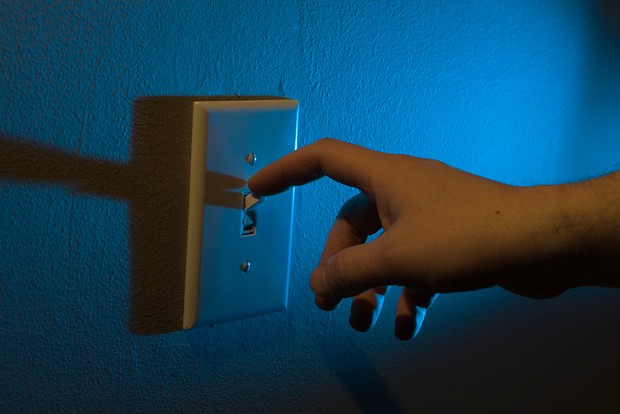NS Power pocketed $2 million in reconnect fees last year
Hefty costs to turn the lights back on perpetuate a cycle of poverty, says one customer.
[
{
"name": "Air - Inline Content - Upper",
"component": "26908817",
"insertPoint": "1/4",
"requiredCountToDisplay": "8"
},{
"name": "Air - Inline Content - Middle",
"component": "26908818",
"insertPoint": "1/2",
"requiredCountToDisplay": "8"
},{
"name": "Air - Inline Content - Lower",
"component": "26908819",
"insertPoint": "100",
"requiredCountToDisplay": "1"
}
]
A few weeks ago, Colin Duggan was at his day job when his wife called him saying the power was cut off. She was home alone with their six-month-old baby and was getting ready to pump milk.
Duggan thought there was an automatic payment coming out of their account to Nova Scotia Power and was surprised to be past-due with the amount they owed. Making the baby his priority, Duggan wanted to do whatever it took to get their power back on so his wife could pump. This meant, paying for the past due amounts, a required reconnect fee of $28, an additional priority fee of $75 and a three-month security deposit on their next bill.
“We are lucky and privileged enough to pay a pretty hefty bill, but that’s a structural advantage we have,” says Duggan. “What got my attention is not our situation, but thinking about how someone else would deal with that.”
Duggan is not the only person to go through this. In 2017, NS Power collected around $2 million from reconnection fees. Of those 70,000 reconnects, 1,800 were priority service requests, totalling $135,000.
Though Duggan finds the $28 reconnect fee reasonable and justified, he believes the three-month security deposit only perpetuates poverty and keeps those who may have fallen on hard times struggling in a cycle they can’t afford.
“There’s only one power provider here so people don’t have any other option. My option is to pay whatever they say or I don’t have electricity,” Duggan adds. “I cant say, ‘I don’t like how this company is dealing with this so I’m going to go and pay from someone else.’ It’s the only game in town.”
Representatives from NS Power say the connection fees cover the cost for their employees to travel to and from the customer’s location and “collect energy usage data from the meter in person to close off the previous account and initiate the new account.”
The deposit, on the other hand, is more of a security measure.
Communications advisor Tiffany Chase says the utility does its best to help customers find payment solutions and disconnection to non-payment is always a last resort.
“Our goal is to find a solution that works for the customer based on their individual circumstances. There are a number of customer communications—both automated and in-person—that take place prior to disconnection of service, including through the bill itself, calls to the customer and door knocks.”
Duggan doubts it’s intentional and knows that if he couldn’t afford it they would probably offer an arrangement but still believes the hefty fees are making less fortunate customers structurally dependent on NS Power.
“It’s a big enough corporation that the numbers just don’t add up. It’s a series of overlapping policy decisions that put people in a cycle.”
Ideally, Duggan would like to see NS Power be more transparent with their billing expectations. During his disconnect, he struggled to find enough information on the company’s website. He also suggests NS Power could be more proactive—offering tips and notes on lowering one’s usage and budget depending on income.
“What gets me is that someone having to sell their car or do something drastic in order to get the bill paid off in the first place, only to find out after the bill is paid off that they have to pay a deposit that will cost even more, all so Nova Scotia power feels ‘secure.’”












